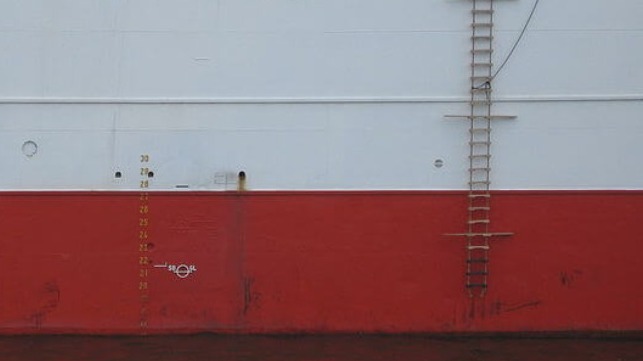Poor Comms Led to Chief Mate's Death in Pilot Ladder Accident

The Australian Transport Safety Bureau (ATSB) has censured the operators of two vessels involved in a fatal crew transfer accident off Brisbane for failing to ensure the crew had complete understanding of the evolution before carrying it out.
In July 2021, the buker Formosabulk Clement departed Taiwan, bound for Newcastle to load a cargo of coal. The COVID-19 pandemic was still in full swing, and the ship’s trade route for the last six months had provided no opportunities for crew change. 14 of the 25 seafarers on board had been on the ship for longer than the Maritime Labor Convention maximum of 11 months.
At the time, the crew change rules varied between different states in Australia, and Queensland offered the best opportunities. To take advantage of this opening, the bulker’s manager, Formosa Plastics Marine Corporation (FPMC), arranged with its local shipping agents in Australia to set up a crew transfer off Brisbane. The arrangements would involve the ship calling at the port's anchorage to rendezvous with a harbor boat. 11 crewmembers were set to join the ship, and 15 were leaving.
Clement anchored about six miles east of Point Cartwright on the morning of August 9, 2021. The launch service provider, Pacific Tug, notified the ship that it would need to make two trips with its crew transfer vessel, the launch PT Transporter.
The weather and surface conditions were relatively rough at the open-water anchorage, rough enough that some of the oncoming crewmembers got sick during the ride out to the ship. The bulker yawed about its anchor between a range of headings throughout the day, sometimes leaving the starboard side transfer station exposed to wind and waves. The ship's master used the main engine and the rudder to change the heading and create a lee each time the transfer vessel came alongside.
The chief mate was to depart from the bulker after supervising a series of crew transfers. At 1830 hours, after a break for the transfer launch, the operation for the chief mate to depart the bulker started. The launch skipper called the Clement's master on the radio to request a lee. Language barriers prevented a good mutual understanding of the plan, and instead of waiting for the Clement's master to change heading, the launch skipper maneuvered in to make a trial pass at the boarding area and assess the conditions.
Unbeknownst to the launch skipper, who believed that the pass at the transfer area was just a dry run, the Clement's departing chief mate began climbing down the pilot ladder as the launch approached. At about 1838, a large wave rolled in and lifted the launch upwards, trapping the chief mate between the boat and the ship's hull. When the wave subsided, the chief mate fell into the sea. His lifevest inflated and kept him afloat, and the crew of the PT Transporter quickly retrieved him. He was unconscious, and the crew administered CPR as the launch headed back in to shore to deliver him for medical care. He did not recover and was pronounced dead shortly after arrival at the pier.
Soon after the accident, the Australian Maritime Safety Administration ordered Formosabulk Clement detained for deficient boarding arrangements, forcing the rest of the crew change operations to take place by helicopter. The vessel was held for four days, then allowed to continue on its commercial voyage to Newcastle.
The ATSB concluded that both the Clement and the transfer launch operator had failed to communicate a clear plan and ensure mutual understanding. Neither operator had formulated a sufficiently detailed and clear procedure for communicating during transfers, according to ATSB.
“This was a tragic accident, involving a seafarer who had been at sea for more than 400 days due to global border restrictions during the COVID-19 pandemic,” ATSB Chief Commissioner Angus Mitchell said. “Problems with language, translation and interpretation are known risks in international shipping that were not adequately mitigated on this occasion. Both ship and launch crew assumed those on the other vessel understood what was happening and about to happen and were experienced in the transfer operation from each other’s perspective – but this simply was not the case.”

that matters most
Get the latest maritime news delivered to your inbox daily.
The International Transport Workers' Federation took a different view. If quarantine rules had allowed a crew change at the Clement's intended destination in New South Wales, there would have been no need for the risk of a pilot-ladder transfer off Queensland.
"This crew member could have gone down the gangway, gotten into transport and got into hotel quarantine and probably would be laying on a hotel bed," ITF spokesman Ian Bray told ABC. "As a result of this, he's lying on a slab in the mortuary."
